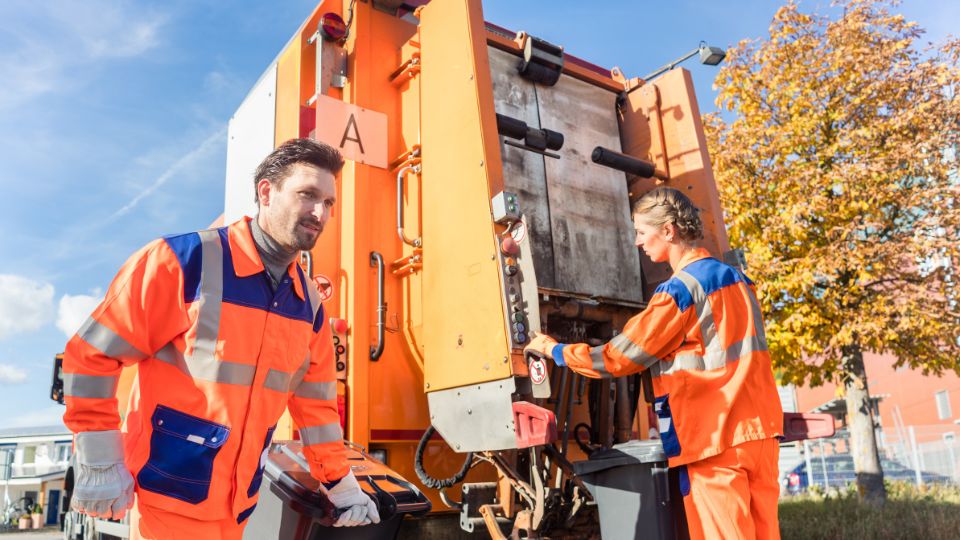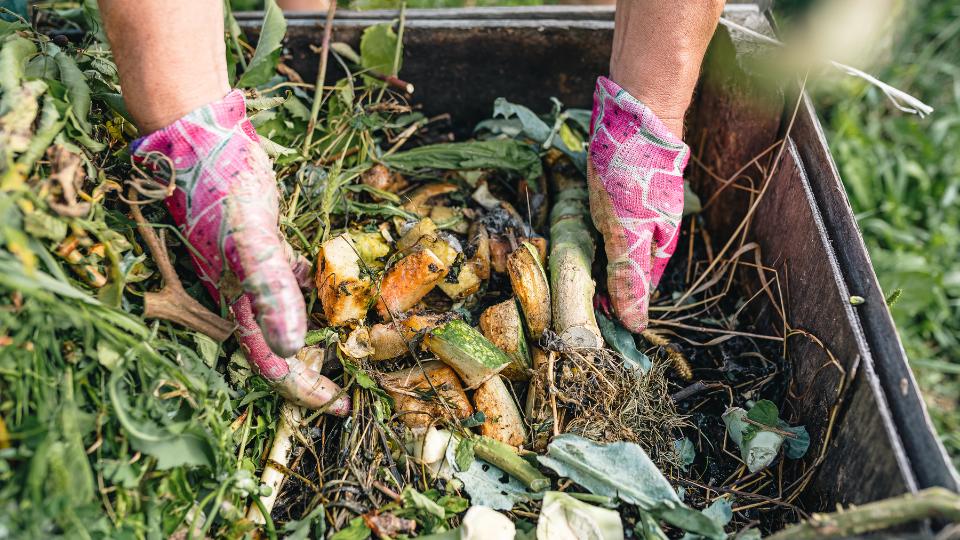
Business composting efforts are easy!
Businesses across lots of industries are now considering ways to reduce their carbon footprint and contribute positively to sustainability efforts.
One effective strategy that more and more businesses are using is composting!
Composting not only helps divert food waste from going to landfill, but also produces really nutrient soil you can use for landscaping around your business, or even sold for additional revenue if you have the right permissions.
Keep reading through this guide to see how easy it is to set up a compost bin at your business address.
Table of Contents
- Step 1: Assessing Your Business Waste
- Step 2: Waste Sorting
- Step 3: Choosing Your Business Compost Bin
- Step 4: Training & Education
- Step 5: Monitoring and Maintenance
- Step 6: Using Your Business Compost
- Benefits of Composting for Businesses
- Conclusion
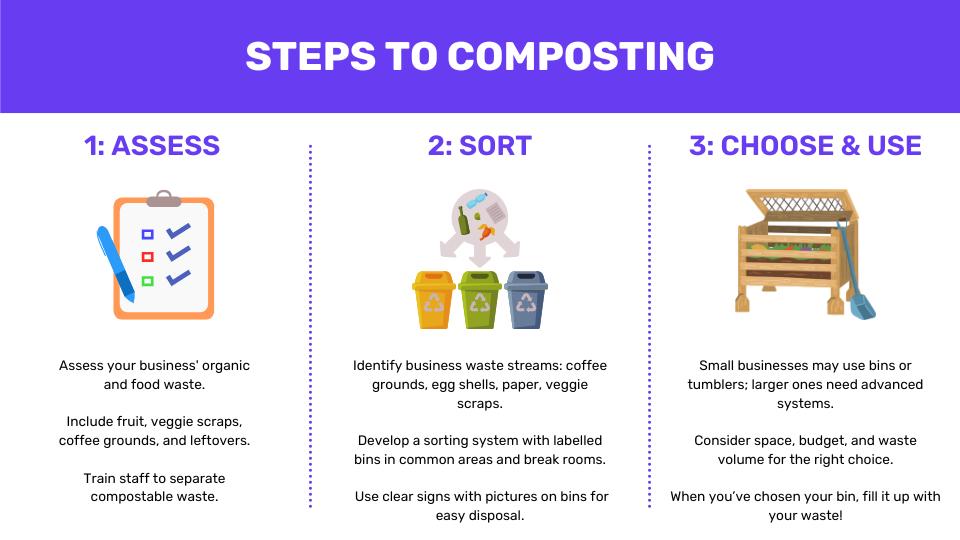
Step 1: Assessing Your Business Waste
The first step is to assess your business’ organic and food waste.
This might include fruit and vegetable scraps, coffee grounds, or any other leftover food.
Start by identifying these organic materials in your waste stream and make a note of how much of this type of waste you’re generating.
Begin to train your staff to separate your compostable waste from other waste that may go into a food waste bin or general waste bin.
Restaurants, cafes, pubs, takeaways, and hotels will be the biggest contributors to food waste, and therefore have the highest likelihood of saving money through composting!

Step 2: Waste Sorting
Once you’ve identified the waste streams within your business, like coffee grounds, egg shells, paper waste and vegetable scraps, develop a waste sorting system that will allow you to sort easily and efficiently.
This may involve providing clearly labeled bins or containers for compostable materials in common areas and employee break rooms.
Top Tip! Put clear signs that have pictures on the front of your bins so that anyone using the bin knows exactly what to dispose of, and where!
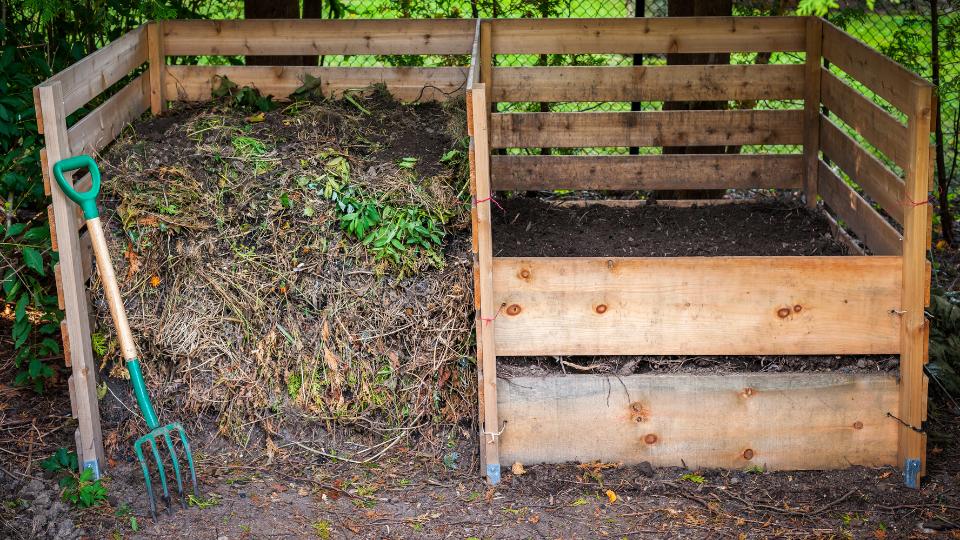
Step 3: Choosing Your Business Compost Bin
Selecting the right composting equipment or system is crucial for successful composting.
For smaller businesses, simple compost bins or tumblers may suffice, while larger operations may require more advanced composting equipment.
Consider factors such as space availability, budget, and the volume of organic waste generated when choosing composting infrastructure.
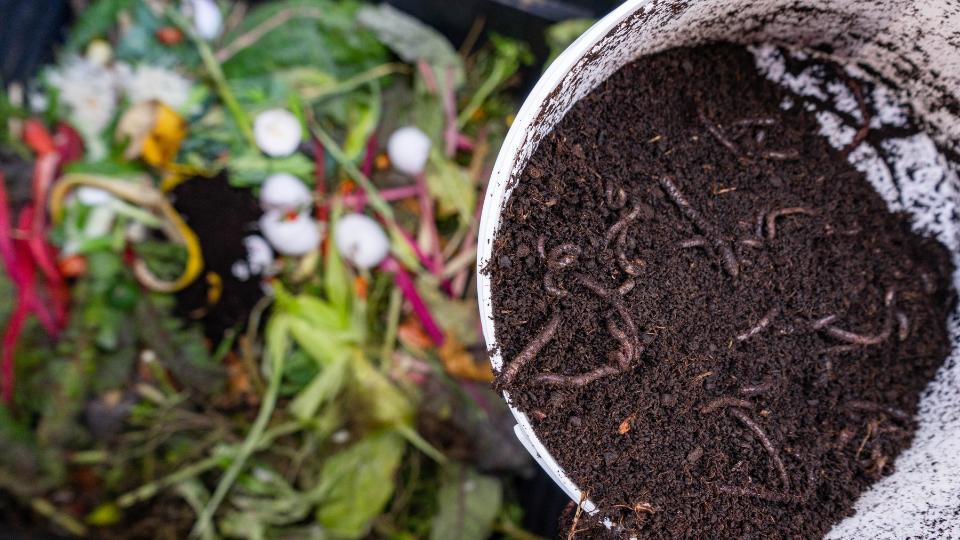
Step 4: Training & Education
Employee training and education are key components of a successful composting programme.
Provide comprehensive training on composting practices, including what materials can be composted, how to properly sort waste and the benefits of composting for the environment.
Encourage ongoing education and communication to ensure staff remain engaged and informed.
Top Tip! Make one of your employees a ‘Composting Champion’ who is responsible for encouraging other members of staff to sort waste correctly and use the compost bin.

Step 5: Monitoring and Maintenance
Regular monitoring and maintenance are essential to keep composting systems running smoothly.
Develop a schedule for checking compost bins or piles, adjusting moisture levels, and turning or aerating the compost as needed.
Monitor temperature and decomposition progress to ensure the optimal conditions for composting are kept to!
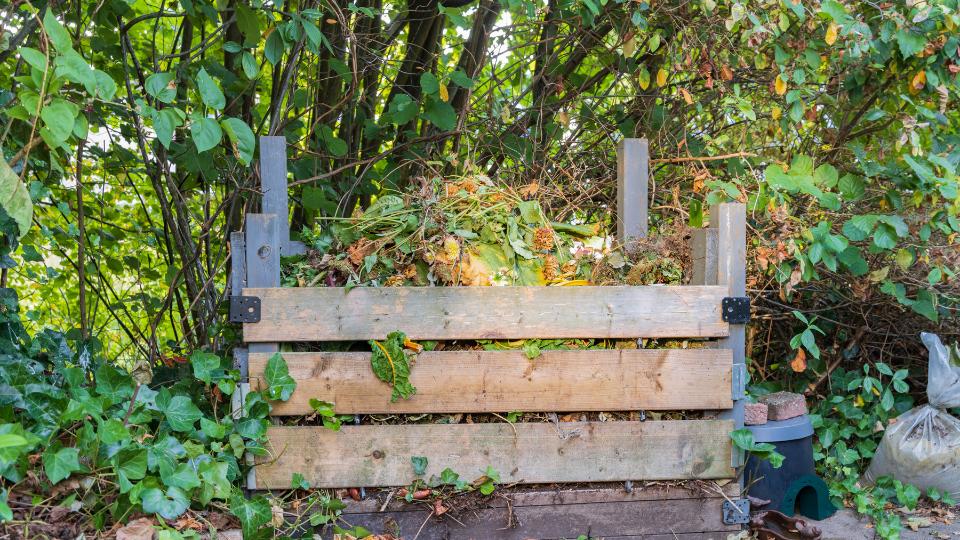
Step 6: Using Your Business Compost
Once composting is complete and the organic materials have broken down into nutrient-rich soil, explore ways to use the finished compost!
Use it to enrich soil in landscaping projects, gardens, or green spaces around your business premises.
Are there any products that you’re buying that you could plant instead?
Have you decorated your pub garden with lots of plants for your customers, or maybe you want to start a beautifying project?
Consider partnering with local community gardens or urban farms to donate excess compost or explore opportunities for selling compost to customers or community members.
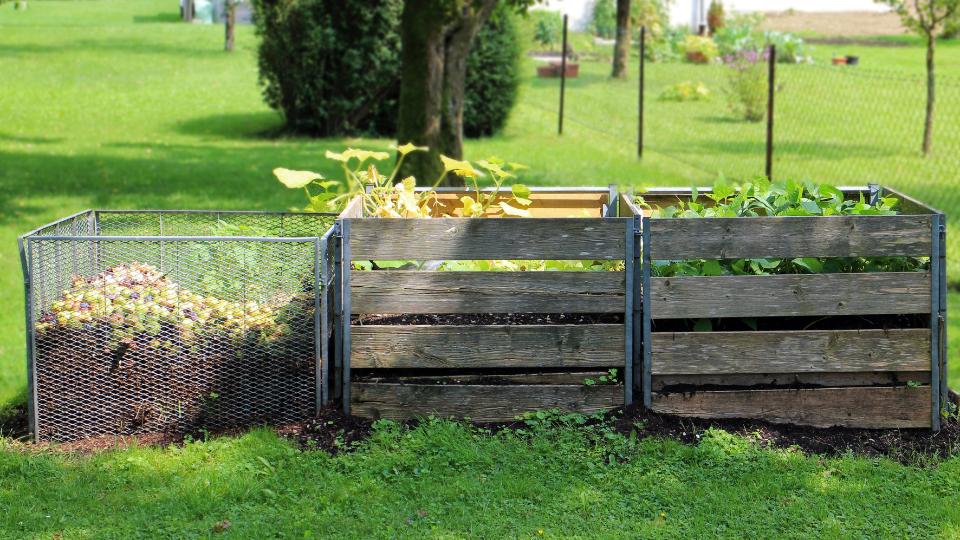
Benefits of Composting for Businesses
Composting offers numerous benefits for businesses, including:
- Cost Savings: By diverting organic waste from landfills, businesses can reduce waste disposal costs.
- Environmental Responsibility: Composting helps businesses minimise their environmental impact by reducing methane emissions from landfills and conserving natural resources.
- Brand Reputation: Demonstrating a commitment to sustainability through composting initiatives can enhance a business’ reputation and attract environmentally-conscious customers.
- Employee Engagement: Involving employees in composting efforts can boost morale and create a sense of environmental responsibility within the workplace.
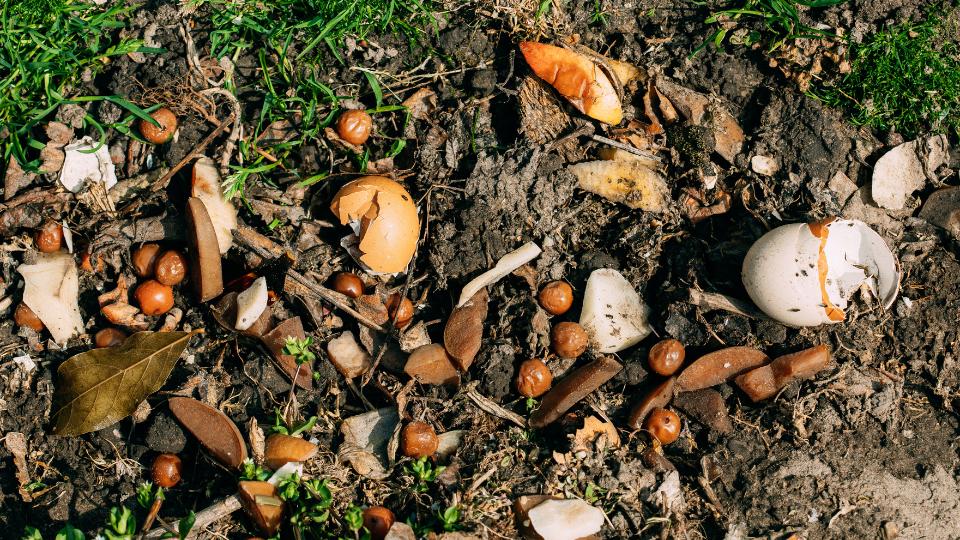
Conclusion
In conclusion, composting is a practical and sustainable waste management solution for businesses across various industries.
By following these steps and embracing composting practices, businesses can play a vital role in promoting environmental sustainability while reaping the benefits of cost savings and enhanced corporate responsibility.



